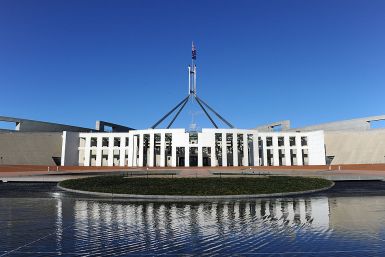All of us are becoming more aware of the need to encompass sustainable living into the future. Gone are the wasteful days of using electricity as though there was no tomorrow and the utter waste of fuel in all its forms has been nothing less than disgraceful.
Choosing a tank suitable for aquaponics is probably a no brainer. Many people grab the first thing that suits their budget, but not all tanks are the same and some can positively damage your health and kill all your fish.
Did you know that vaccinating your cat with the typical, recommended feline vaccination schedule may lead to your furry friend developing cancer?
What if it was possible to eliminate much of the world's otherwise very-slowly-biodegrading plastic waste using a natural Amazonian fungus?
With space opening up for private sector entrepreneurs it was only a matter of time for businessmen to turn to more prurient interests. Playboy and space tourism company Virgin Galactic are teaming to imagine the first Playboy Club in outer space.
Before, to be diagnosed with the big C seemed to be an implied death sentence. Patients even go through a stage of self-denial. Who can blame them? Conventional medicine paints a rather bleak future for cancer patients and the remedy it offers does nothing to improve their quality of life, nausea and falling hair not to mention.
The expression "he/she died of a broken heart" is often used to describe someone who has died after having been depressed for a long time. Usually that person drinks or drugs himself/herself to death after a desperate period of loss, bitter disappointment, or environmentally induced depression.
After thousands of years Western medicine is finally recognising the benefits of meditation to treat diseases including mental illness. Under the disguise of MBCT, Mindfulness Based Cognitive Therapy, meditation is being accepted as a way to treat various conditions in the field of mental illnesses.
Simultaneous targeting of two different molecules in cancer is an effective way to shrink tumors, block invasion, and stop metastasis, scientists at the University of California, San Francisco (UCSF) have found - work that may improve the effectiveness of combination treatments that include drugs like Avastin.
Mitochondria, tiny structures within each cell that regulate metabolism and energy use, may be a promising new target for cancer therapy, according to a new study.
Reyna Robles was always the first one up and the last one to bed: she possessed more than enough steam to come home from her full-time job, prepare a meal for her husband and children, take her dogs for walk and help her kids with homework.
Here's another development in science that seems to have been taken from science fiction. Chemists at LMU Munich in collaboration with colleagues from Berkeley and Bordeaux have shown that it is possible to inhibit pain sensitive neurons using an agent that acts as a photosensitive switch.
The sky might be a little closer to the Earth according to NASA satellite image data. Over the last ten years, the height of cloud covers has been lowered by one percent or 30 to 40 meters.
Santos, a coal seam gas (CSG) mining company in Australia, admitted committing environmental errors in its Pilliga East State Forest operations. In a report to the New South Wales government which contained a review of its drilling operation, Santos said there were many instances of pollution, including leaks and spills, that were reported.
Is your dog a couch potato in desperate need of some quality television programming while you're at work? If you and your four-legged friend happen to live in the San Diego area, you're in luck.
American scientists reported on Wednesday what they called an important step that could prevent sudden deaths due to ventricular arrhythmia or abnormal heartbeat that usually occur during the early morning hours.
Scientists mapping Venus's surface with the European Space Agency's Venus Express orbiter recently received a shock when features on the planet's surface appeared to have moved up to 12.4 miles from where they were expected to be, reports National Geographic.
Cynics will find a hard time believing the new study from researchers at Emory University. According to the results of the research conducted by Frans de Waal, humanity isn't nasty at their core.
Radioactive contaminants spewed from the damaged Fukushima nuclear power plant in Japan have reached the open seas, according to a new report issued this week by U.S.-based researchers.
Recent studies have considered obesity as a modern epidemic, with many adverse effects on a person’s health, such that researchers continue to focus on issues relating to obesity particularly the role of exercise in maintaining a healthy body.
Scientists have developed nano-robots that can deliver deadly payloads to unhealthy cells.
A team of Russian scientists have resurrected an entire plant that bloomed when sabre-toothed cats and wooly mammoths roamed the Earth.
The status of work-related cancer has received little attention from Australian policy-makers as well as researchers from Australia. Despite the heavy public and media attention for this, the progress that it has experienced as compared to tobacco use and sun exposure could be considered as "minimal". For example, the National Health and Medical Research Council (NHMRC) established model regulations for the control of carcinogenic substances during the 1980s.
Queensland children who are affected by diseases that impair skeletal health like cancer or cystic fibrosis would soon experience the benefits of a new boned density technology.
When the Tongue Drive System was first launched, many people were doubtful about its effectiveness. This is the reason why many changes were incorporated in this new prototype in order to cater to the needs of people who would benefit from this tool.
One of the most alarming situations in health worldwide involves the spreading of bacterial resistance. This situation captured a young Danish scientist who has now discovered a natural substance found in the rainforest in Chile that effectively combats this problem with antibiotics.
Students from Flinders Maritime Archaeology have found a new discovery in the form of three shipwrecks near a site Bunbury.
Queensland researchers recently found a new genetic analysis which shows the relationship between genetics and schizophrenia.
A NASA spacecraft was a stunning video showing the sun's plasma spinning around in the sun's magnetic field earlier this month.
A novel formulation for metastatic colorectral cancer has been granted patent rights by the European Patent Office.








